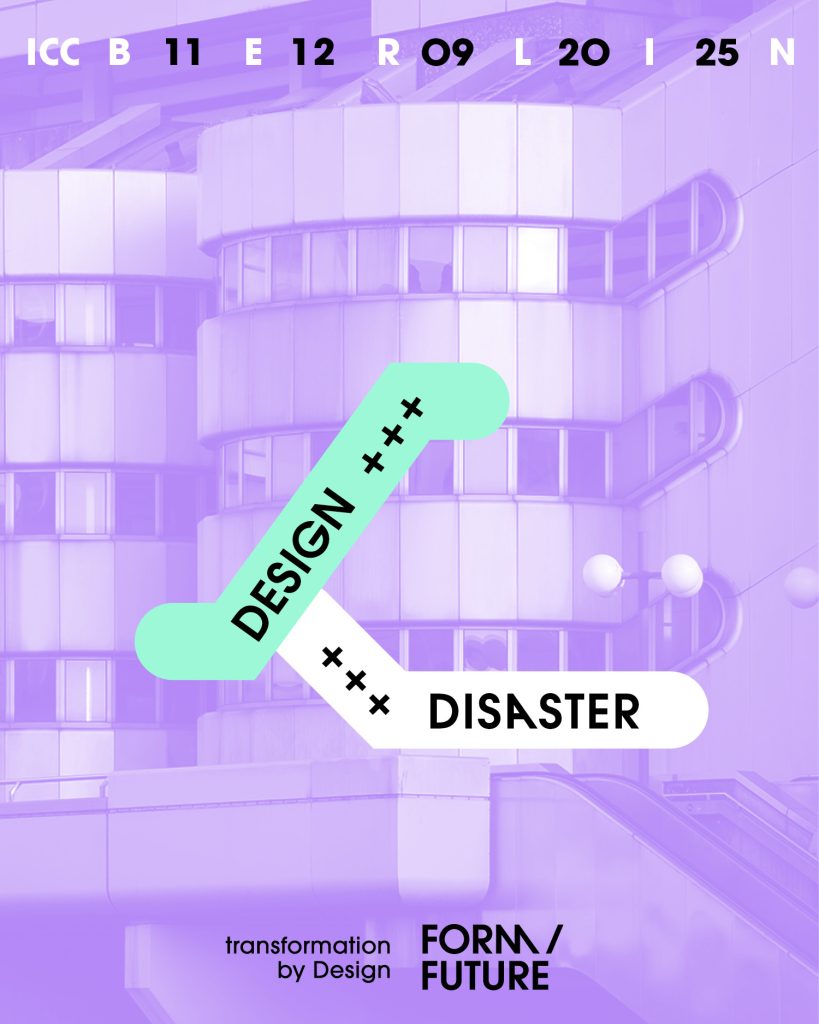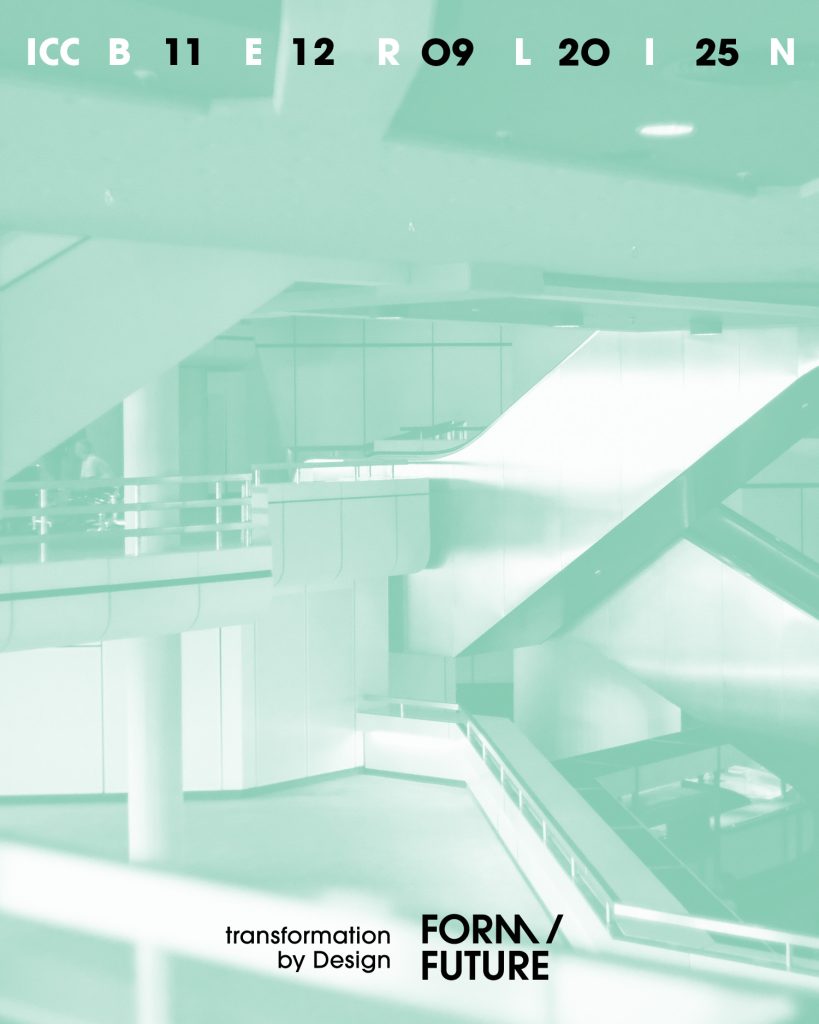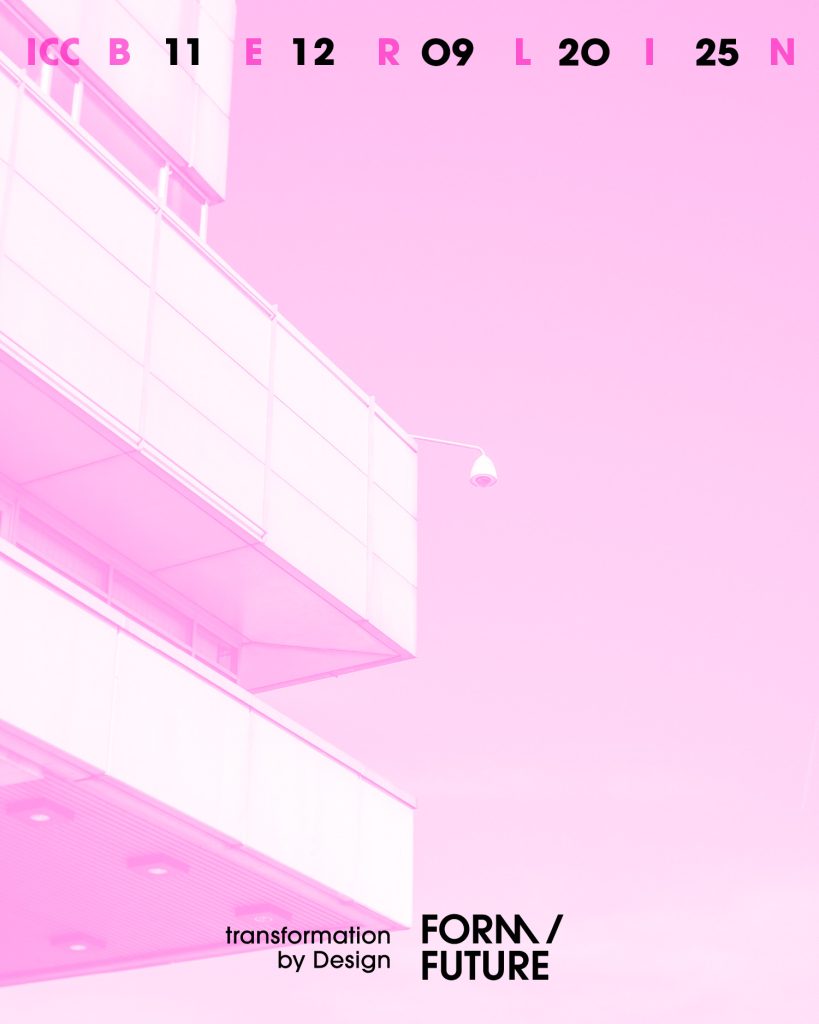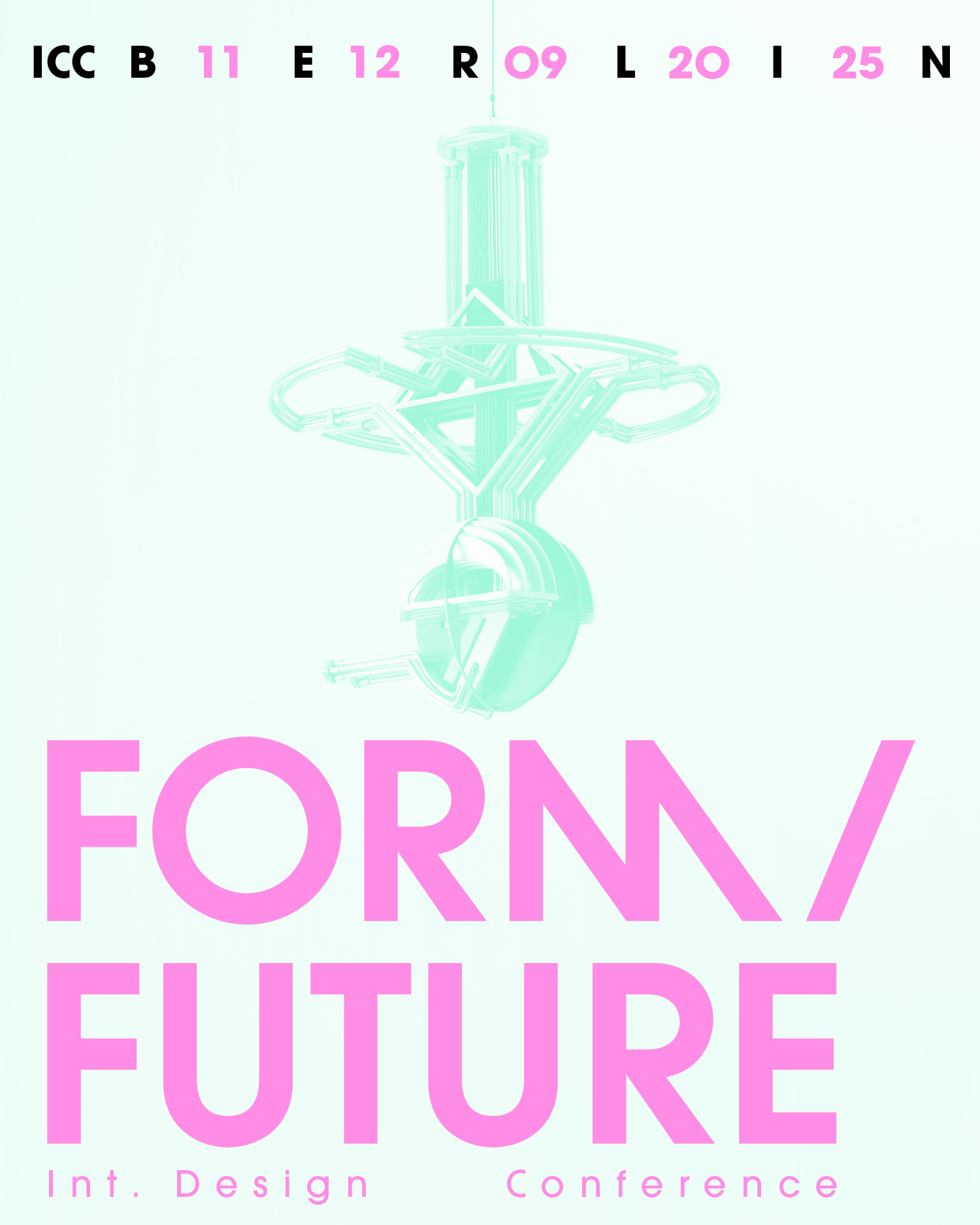On September 11 and 12, 2025, the legendary ICC trade fair building will open its doors for a special conference format on the occasion of Open Monument Day: FORM / FUTURE is less event, more experiment - a radial attempt to understand design not as a decorative accessory, but as a driver of social transformation.

Design as a mindset, not a discipline
"We don't see design as a discipline, but as a mindset," explains curator Dara Sepehri, who is part of the organizing team with his agency 3STN. This change of perspective also turns out to be a programmatic statement: while other conferences hold portfolio shows, FORM / FUTURE poses relevant systemic questions: How do we navigate uncertainty? How do we create more connecting than dividing elements in a time of multiple crises and catastrophes? How do we open up new spaces of possibility - for hope, courage, drive and the joy of creation?
The list of speakers reads like a Who's Who of design thought leaders: for example, Phil Gilbert, former head of design at IBM and pioneer of design thinking, or Friedrich von Borries, the crossover artist between design, art and social criticism, whom readers may remember from our second issue:innen may remember from our second issue; "Design is political because politics is the negotiation of how we shape our coexistence, and this coexistence is determined by the - in the classic sense political - legal framework, but also by apartment floor plans, smartphones and communication interfaces, i.e. the results of design processes that many people do not initially see as political," he told us in an interview back in 2021. Frederike Kintscher-Schmidt, President of the VDID, or Simone Kapeller from Ravensburger, who puts gaming in relation to the future of the creative industries.
Circular design meets disaster design
The range of topics is therefore deliberately extremely diverse: Circular design stands alongside "Design & Disaster", transformation processes in industry meet public infrastructure, AI-supported design meets urban development - the aim is to think design wherever it becomes socially relevant.
"We bring voices to the stage that are optimists at heart, driven by curiosity and change-makers through radical thinking," say the organizers, "after all, too often in the design industry, people spend their time discussing trends when it should actually be about systemic change.
Four stages, four perspectives
And the location could not be more fitting: the ICC Berlin, this brutalist spaceship from the 70s, will become a laboratory for the future. For the first time in the building's history, a conference will be held here and the ICC will become a walk-in metaphor. Four different stages will create four different spaces for discourse: the imposing Conference Stage in Hall 2 for the major keynotes. The "Spaceship Bridge" in Hall 6 - a concentrated, circular space for intensive discourse. The interactive Foyer Stage in the middle of the networking area. And finally, various spots throughout the building for masterclasses and workshops.
This spatial dramaturgy is more than just event architecture - it is applied design philosophy. Each room tells a different story about how design works: from the grand narrative to the intimate working atmosphere.
More than networking: dialog instead of advertising space
FORM/FUTURE explicitly positions itself as "Dialogue, not ad space". No portfolio presentations, no product shows, but skill sharing and strategy discussions. Participants should not consume, but co-create. Master classes ranging from circular design to "Design Futures" and "Transformation Storytelling" provide concrete skills for action.
Of particular interest: the conference is part of the 49h ICC project, an initiative by visitBerlin as part of Berlin's status as a UNESCO City of Design. The ICC will become a temporary creative hub - an experiment in interim use and cultural transformation. The International Congress Centrum, opened in 1979 and for a long time the largest conference center in the world, is itself a design statement: radical, polarizing, forward-looking. Today, it stands for a time when people still believed in the transformative power of architecture. It is precisely this attitude that the design scene needs again: the courage to make a grand gesture, to be socially relevant.
The organizers see the ICC not just as a venue, but as part of the story. Installations, pop-ups, performances and curated spaces transform the congress center into a stage. Hospitality, retail, health, mobility: "Experience tomorrow's spaces, today."

A festival of transformation
FORM/FUTURE is less conference, more festival - a two-day experiment in applied design philosophy. Between keynotes and master classes, between networking and skill-sharing, a temporary space of possibility is created. This is where decision-makers meet creatives, strategists meet visionaries, theory meets practice.
The price structure is characteristically democratic: standard tickets for 199 euros, student tickets for just 45 euros. This is also a statement: design discourse must not be an elite project.
Tickets and further information here
The most important facts in brief:
- What: FORM/FUTURE Design Conference
- When: September 11-12, 2025
- Where: ICC Berlin
- Tickets: From 199 euros (students: 45 euros)
- Special feature: Part of the 49h ICC project, UNESCO City of Design Initiative
- Speakers: 50+ speakers from design, business, science and politics






